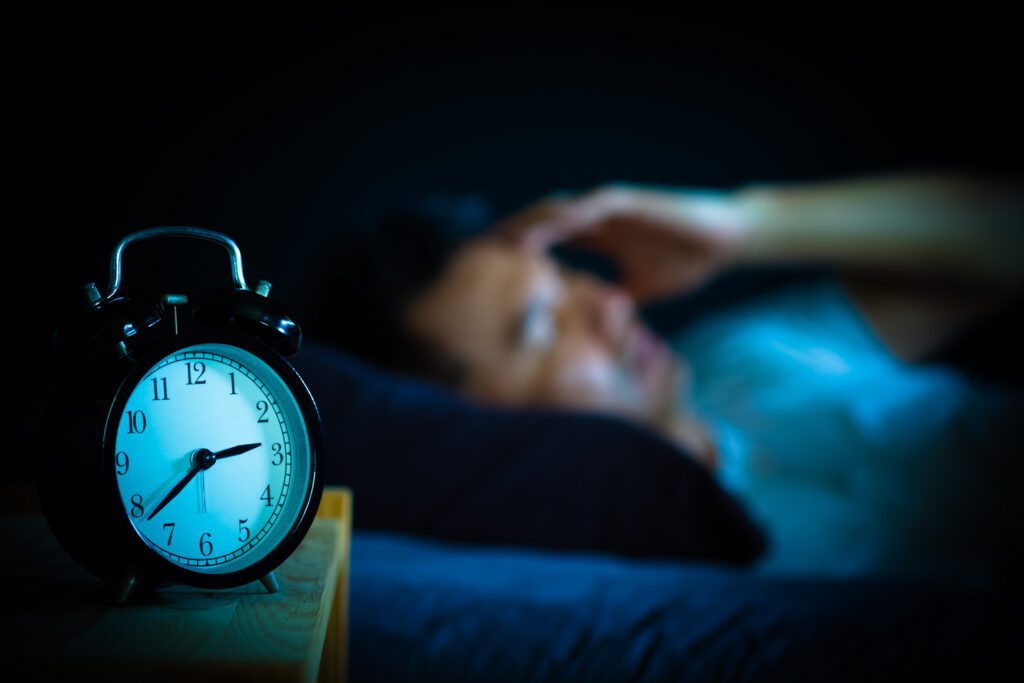Exploring the Connection Between Sleep and Mental Health
by RYAN MILEJCZAK
According to the Centers for Disease Control and Prevention, about 1 in 3 adults in the United States report not getting enough rest or sleep every day. You’ve likely heard time and again that sleep is essential to your physical health. But did you know it also plays an important role in your mental health? When you skimp on quality sleep, it can seriously affect how you feel.
Inadequate sleep can cause a person to be irritated more than usual, emotionally drained, or perform poorly at work or school, says Jennifer Goodson, LMHC at Pathway Counseling Services in Winter Haven.
Lakeland Regional Health psychiatry resident Dr. Michelle Wu adds that poor sleep can even cause physical symptoms.
“Without adequate sleep, individuals can experience ‘brain fogginess,’ lack of concentration, decreased appetite, and physical symptoms such as headache, nausea, vomiting, muscle aches, and joint pains,” she says
Some of the strongest effects, however, are on mental health.
“We have all experienced the side effects of a bad night’s sleep like brain fog or irritability, or yawning throughout the day,” says Amber Screen, LMHC at Atala Counseling in Lakeland, “But it can also worsen symptoms of anxiety, depression, or bipolar disorder.”
Lakeland Regional Health psychiatrist Dr. Shirley D. Alleyne explains that inadequate sleep worsens all mental health problems and is a significant risk factor for almost all mental health conditions. Although all mental health conditions are adversely affected by sleep deprivation, patients who have bipolar disorders, psychotic disorders, depressive disorders, and anxiety disorders are especially at risk.”
It’s important to understand that the relationship goes both ways. Not only can inadequate sleep make mental health problems worse, but increased anxiety can take a toll on your quality of sleep.
“Sleep and anxiety affect each other bidirectionally,” Wu says. “Insomnia can increase the risk of new onset anxiety disorders, worsen pre-existing anxiety, and with increased anxiety, insomnia can worsen further.”
So how do you know if you’re getting enough quality sleep? When you sleep well, it should leave you feeling good and well rested.
“The most important sign of having good quality sleep is the feeling of being alert, clear-minded, and energized upon waking,” Alleyne says. “People who have slept well typically feel calm and emotionally well-balanced.”
If you don’t feel this way when you wake up, it may be time to make some changes to ensure better sleep. While sleep aids are one of the first things many people turn to, the healthcare providers we spoke with agree that isn’t the best option.
“Although sleep aids are sometimes necessary and recommended in situations where other measures have been unsuccessful, ‘natural sleep’ is always preferred,” Alleyne explains. If you do take sleep aids, it’s better to take something like melatonin around sunset, Wu adds.
Instead, some of the most effective techniques for better sleep involve what’s known as “sleep hygiene,” or things you can do to ensure you get the best possible sleep.
“Creating a sleep hygiene routine is vital in preparing for a good night’s rest and de-stressing from the day,” says Goodson.
“Mentally prepare yourself to ‘wash off the day’ before entering bed, whether that be by journaling, taking a relaxing bath or shower, or deep breathing exercises to let go of everything that has transpired that day. Go to bed with a fresh mindset and permit yourself to rest.”
Sleep Hygiene
For proper sleep hygiene, it is recommended that you maintain a schedule of waking up and going to bed at the same time every day, even on days off and weekends. This helps your body establish a healthy circadian rhythm.
It’s also important to put away your electronic devices at least 30 minutes before bedtime, and as much as two hours before. To hold yourself accountable, you may want to power down electronics, put them on “do not disturb” mode, or put them somewhere out of reach. In fact, taking a break from your devices can be beneficial even during the day.
“During the day, a rest could include having tea and enjoying a book, participating in a hobby, taking a short walk outside, or basically anything that does not involve a screen or multitasking,” explains Screen.
Other steps to take for improved sleep include:
- Ensure your sleep environment is dark, cool, and quiet.
- Get regular exercise, but avoid exercising within three hours of bedtime.
- Get adequate exposure to daylight. (It’s especially important to get exposure to natural light first thing in the morning after waking.)
- Limit naps and avoid taking naps longer than 30 minutes.
- Avoid caffeine, nicotine, and alcohol, which can affect your ability to fall asleep and stay asleep.
- Find times to relax during the day, such as by taking walks or practicing a hobby.
- Try to eat at least two hours before you go to bed, avoiding sugary or heavy foods.
- Use your bed exclusively for sleep if possible so your mind associates your bed with sleep.
- Avoid conflict before bed.
With these techniques, you can improve sleep quality and achieve better mental health.
After all, “There is no health or wealth without mental health, and quality sleep is essential to all of the above,” Alleyne says.




